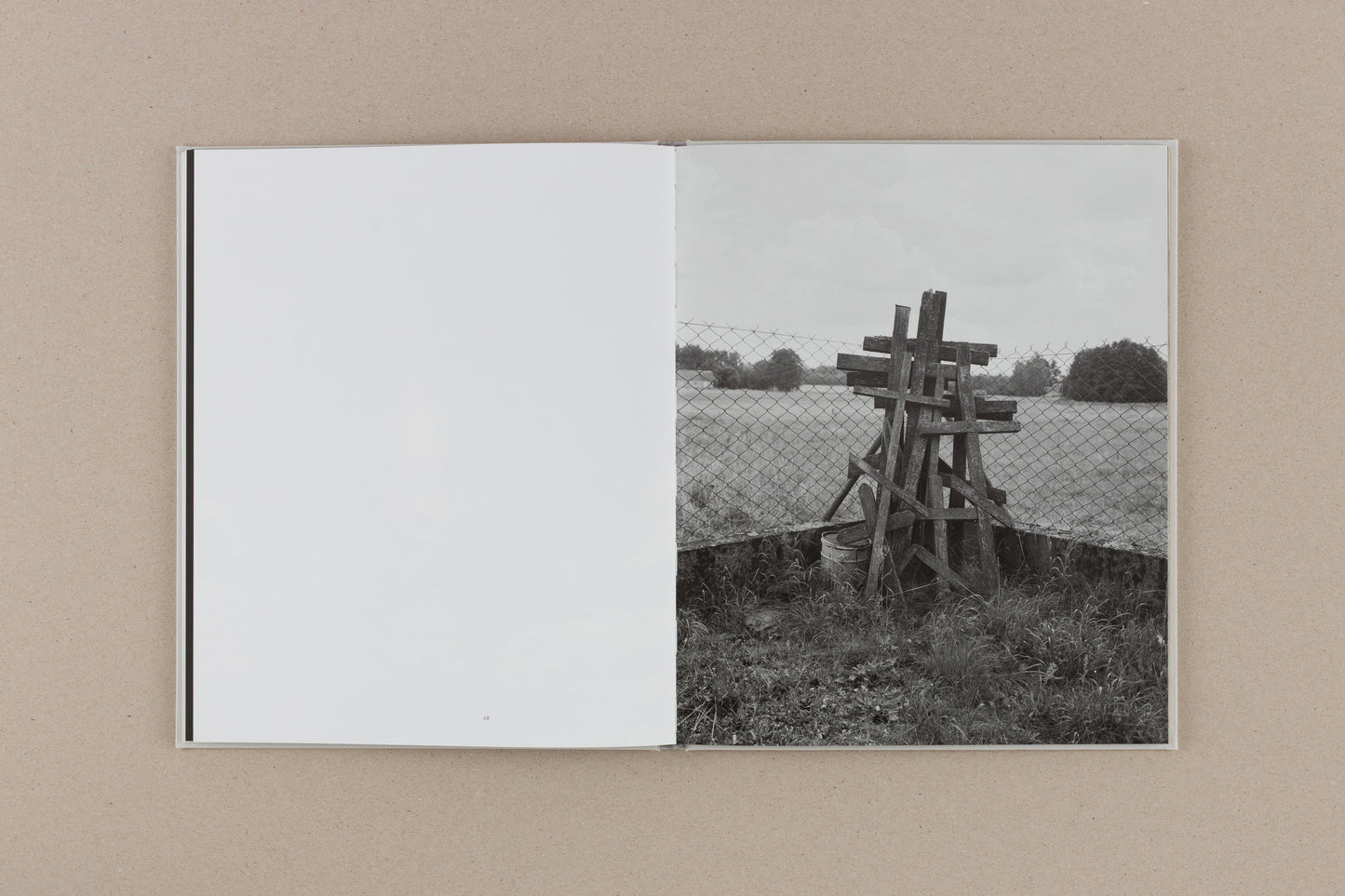Stepping Out Into This Almost Empty Road
Stepping Out Into This Almost Empty Road
by Monika Orpik
Couldn't load pickup availability
In her book “Stepping Out Into This Almost Empty Road”, Monika Orpik combines two seemingly contradictory artistic practices - working with photographic images and working with text. The image layer traverses a specific territory, an area in the vicinity of the Bialowieza Forest. The dreamy, faded photographs, on the one hand, are a documentation of a specific landscape and events happening in the area from August 2020, when the revolution in Belarus began, through 2021 marking the migrant crisis on the Polish-Belarusian border and resulting in the construction of a border wall, until 2022, the year of Russia's brutal invasion of Ukraine.
More
More
On the other hand, the photographs create a visual narrative of an idyllic world. They are like a dream of a country or place from which one has departed, like passing childhood memories. In the presented sequence of photos, the poignant element is emptiness, a landscape without people, forest, empty rooms and abandoned architectural elements. People appear sporadically, mostly - but not always - showing up in banal situations related to life and work. They are not heroes - protagonists of the story - they are an element of the landscape, part of the land. The photographic sequence itself is quiet, almost dreamy. There is a sense of unease in it, perhaps caused by the aforementioned emptiness.
A very aggressive element, a kind of violent awakening from the visual dream, are the texts in the book. They appear unexpectedly, interrupting, or organizing, the sequence of photographs. The texts are composed of excerpts from fifteen interviews conducted by Orpik with people who fled Belarus. In order to create a "collective I," the excerpts were edited and combined into 3 coherent chapters, each dealing with one aspect of migration, i.e. the political regime, being forced to leave your home, and language as identity. They are a polyphonic statement about the experience of fleeing the country, violence, fear and a sense of loss. Working with the text, Orpik not only edits the dissidents' statements, but introduces a very important procedure - erasure. She removes the specification of the locations or countries involved in the stories. Words such as Poland, Belarus, names of cities, people or notion of time, have been replaced with: "There", "Here", "Us", "They". Only in the last chapter, about language and its identity entanglements, does the viewer get a clue about the place the characters are talking about. In addition, the text was left only in the version translated into English and Belarusian. The abandonment of Polish is a symbolic opening to, forbidden in Belarus itself, the Belarusian language. Its presence in the book thus becomes a political gesture.
Orpik's book constantly twists the plot and operates in an intermediate state, balancing between hope and the horrors of war. It departs from the reporter's description of specific events, which, within a second, tend to be overshadowed by new news from other fronts. She talks about the long-term emotional and psychological effects of conflicts, the subsequent trauma and attempts to overcome it. Orpik shows a certain mechanism of violence and experience of loss, which does not apply only to the Polish-Belarusian border, the border of the European Union nor the people who fled the Lukashenko or al-Assad regimes. It is a story about an uncertain journey and a new beginning that can happen to anyone.
Colophon
Colophon
photography & interviews: Monika Orpik
sequence: Monika Orpik & Łukasz Rusznica
book design: Agata Bartkowiak
colour proofing and prepress: Krzysztof Krzysztofiak
curatorial work: Łukasz Rusznica
proofreading of the text in Polish: Anna Wacławik-Orpik
editing of the text in Polish: Anka Herbut
English translation: Jakub Gutkowski
proofreading of the English translation: Sara Pearce
translation into Belarusian: Adela Dubaviec
proofreading of the Belarusian translation: Adela Dubaviec
printing and binding: Argraf, Warsaw
printed on paper: Arctic Volume Ivory
typeset: Garamond Premier
binding: Hardcover
number of pages: 124
publisher: Sun Archive (OPT Zamek)
language of publication: Belarusian, English
year of production: 2022
edition: 500
ISBN: 978-83-966186-0-3
weight: 915g
size: 29,5 x 25,5 cm























